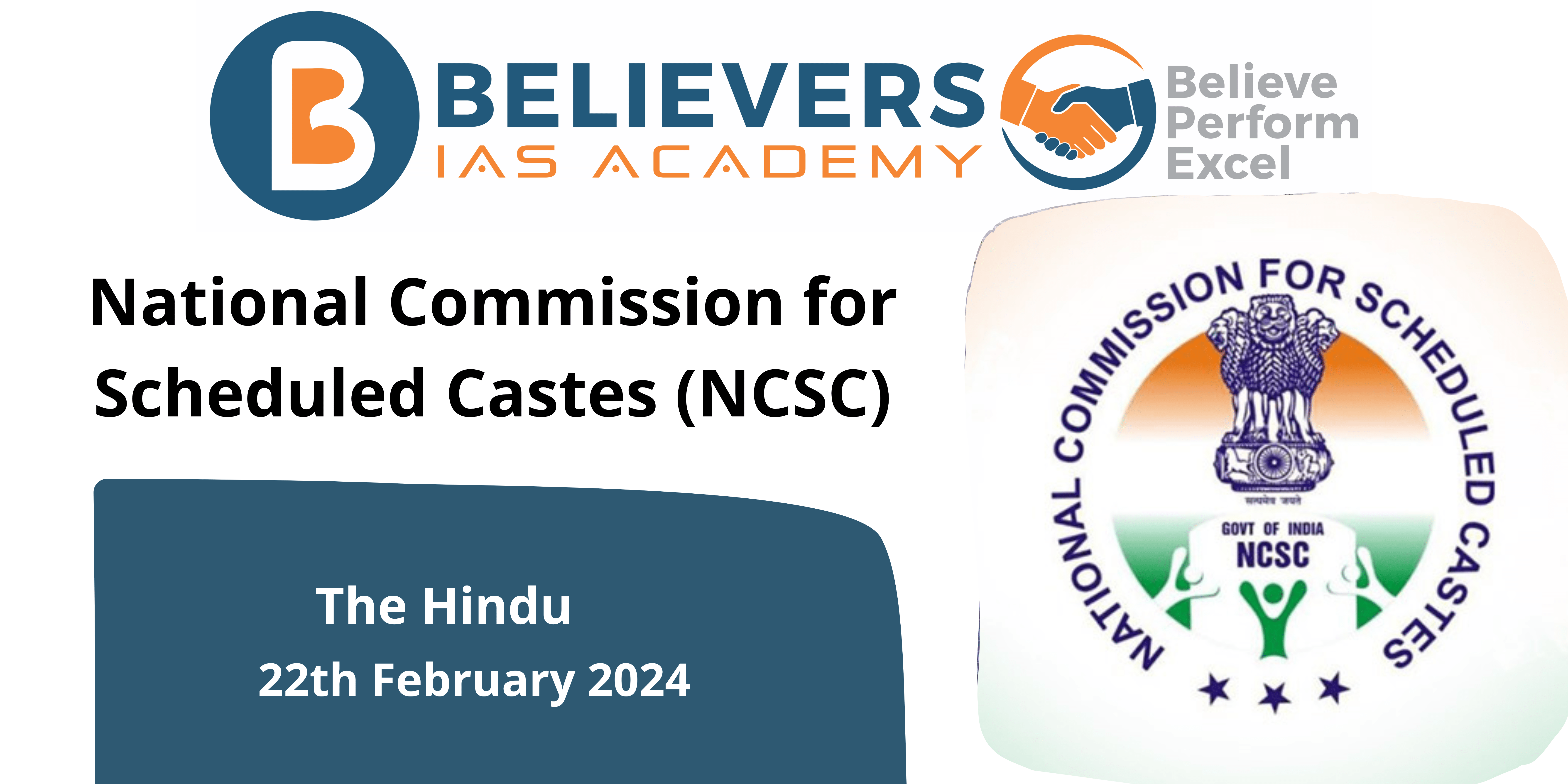National Commission for Scheduled Castes (NCSC)
Context:
The Ministry of Social Justice & Empowerment has recently submitted the Annual Report 2022-23 of the National Commission of Scheduled Castes (NCSC) to the President of India.
- These reports contain recommendations on safeguarding Constitutional protections for Scheduled Castes (SCs) as outlined in the Constitution of India.
Relevance:
GS-02 (Constitutional Bodies)
National Commission for Scheduled Castes (NCSC)
- The NCSC is a Constitutional Body established to safeguard against the exploitation of Scheduled Castes and to promote and protect their social, educational, economic, and cultural interests.
- Initially, the Constitution provided for the appointment of a Special Officer under Article 338, designated as the Commissioner for Scheduled Castes and Scheduled Tribes.
- 65th Constitutional Amendment Act, 1990: This amendment replaced the single-member system with a multi-member National Commission for Scheduled Castes (SC) and Scheduled Tribes (ST) under Article 338 of the Constitution.
- 89th Constitutional Amendment Act, 2003: Article 338 was amended again, leading to the establishment of two separate Commissions in 2004: the NCSC under Article 338 and the National Commission for Scheduled Tribes (NCST) under Article 338A.
- The NCSC comprises a Chairperson, a Vice-Chairperson, and three additional Members appointed by the President.
- Functions:
- The Commission investigates and monitors all matters relating to constitutional and legal safeguards for SCs, evaluates their effectiveness, inquires into specific complaints, advises on socio-economic development planning, presents annual reports to the President, and makes recommendations for safeguard implementation.
Power of NCSC:
- The Commission regulates its own procedures and possesses investigative powers akin to those of a civil court.
- Other Constitutional Provisions:
- Articles 15, 17, 46, 243D (4), and 243T (4) address discrimination, abolish untouchability, promote education and economic interests, and mandate reservations in local self-government institutions and urban local bodies.
- Articles 330 and 332 reserve seats for SCs and STs in the Lok Sabha and state legislative assemblies, respectively, ensuring their political representation.




